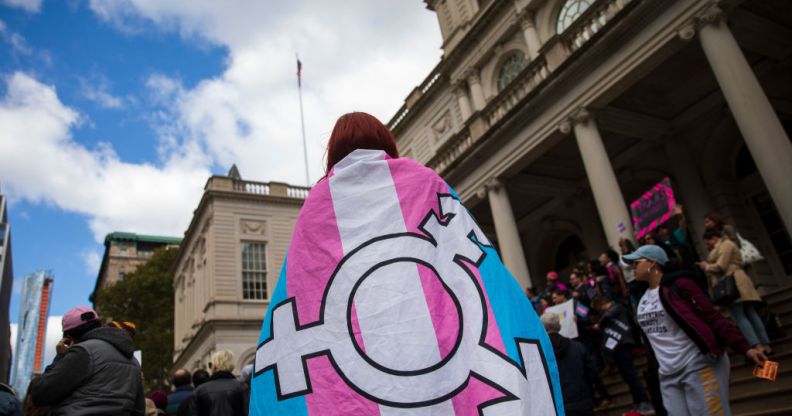Nevada allows non-binary people to self-identify on IDs

Drew Angerer/Getty
Nevada has become the 10th state to allow trans and intersex people to obtain gender neutral IDs.
In addition to the current “M” for male and “F’ for female markers, residents can ask for an “X” to be displayed on driver’s licenses and ID cards.
Nevada joins Washington D.C., Arkansas, California, Colorado, Indiana, Maine, Minnesota, Oregon, Utah and Vermont in the move.
Ray Mcfarlane, a manager at an LGBT+ community center in Las Vegas, told NBC News the policy should be a “model for the rest of the country.”
“All states should let people self-identify,” he added, “the process should be accessible. It should be easy. It should be low cost.”
Are gender markers necessary?
While some in the state think the process could be further simplified by removing gender markers from IDs altogether.
Jane Heenan, the founder and clinical director for Gender Justice Nevada, told NBC News: “While I do intend to go and have my license changed to reflect this new designation, I wonder what the state’s interest is in labeling anybody in a sex and gender context on identity documents,” Heenan said.
“I don’t understand the state’s interest in doing so. It wasn’t that long ago that the state required persons to list an ethnic label on driver’s licenses,” Heenan added.

ROBYN BECK/AFP/Getty
According to Alexandra Walden, public information officer at the Nevada Department of Motor Vehicles, the efforts have been years in the making.
“The Nevada DMV staff have been working diligently for quite some time in order to offer the nonbinary or ‘gender X’ option to Nevadans,” Walden told NBC News in a statement.
Progressive ID policy
As well as allowing people to self identify on ID cards, Nevada also allows residents to obtain gender neutral birth certificates.
While in June it was announced applicants wanting to update their ID’s gender could self identify, without a court order or doctor’s note.
In 2011 the state added gender identity to a list of protected categories in employment discrimination.
Trans individuals are twice as likely as the average American to live in poverty, according to the National Center for Transgender Equality.
A 2015 US Transgender Survey found that only 11 percent of respondents had their preferred name and gender on all of their IDs.

